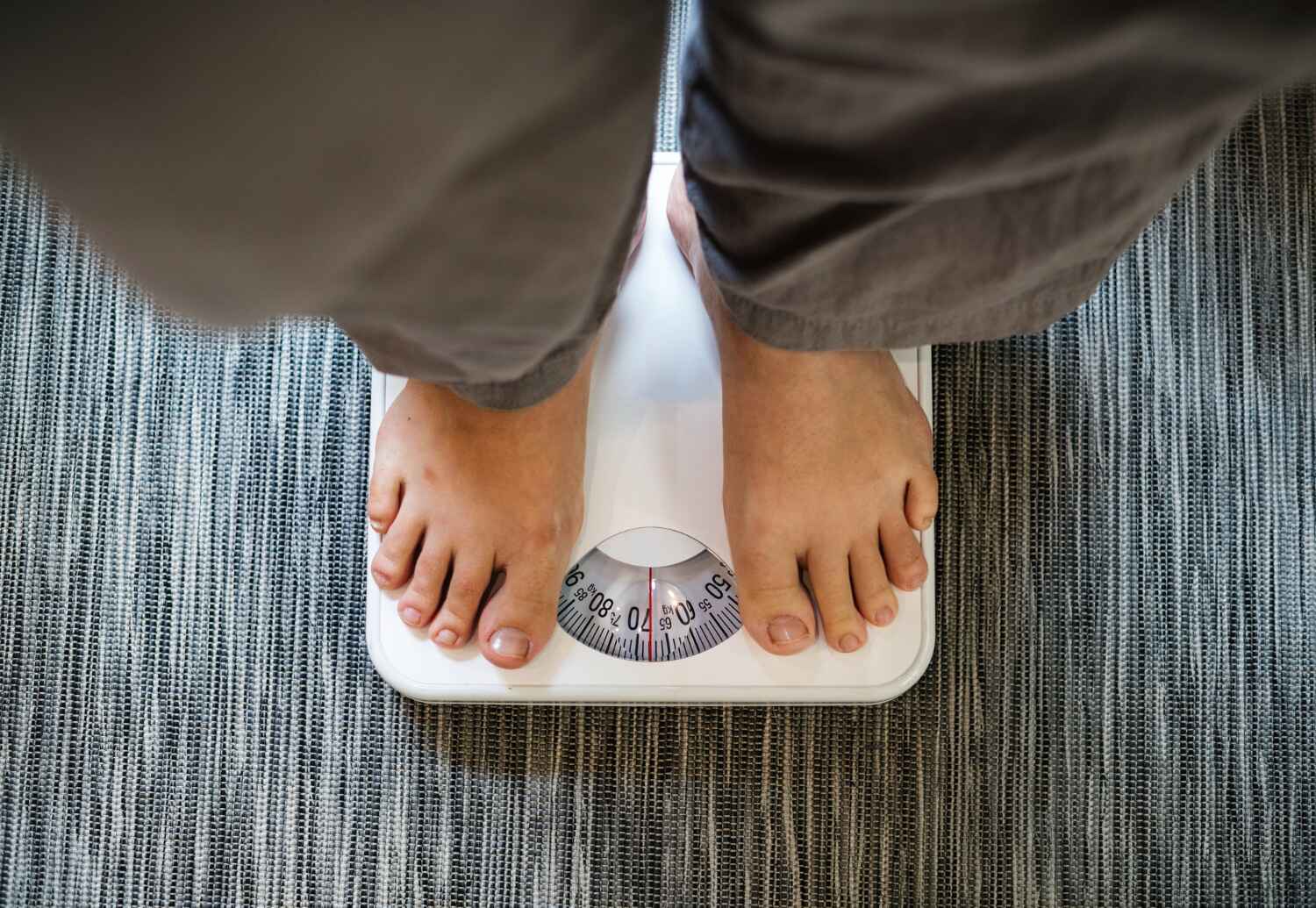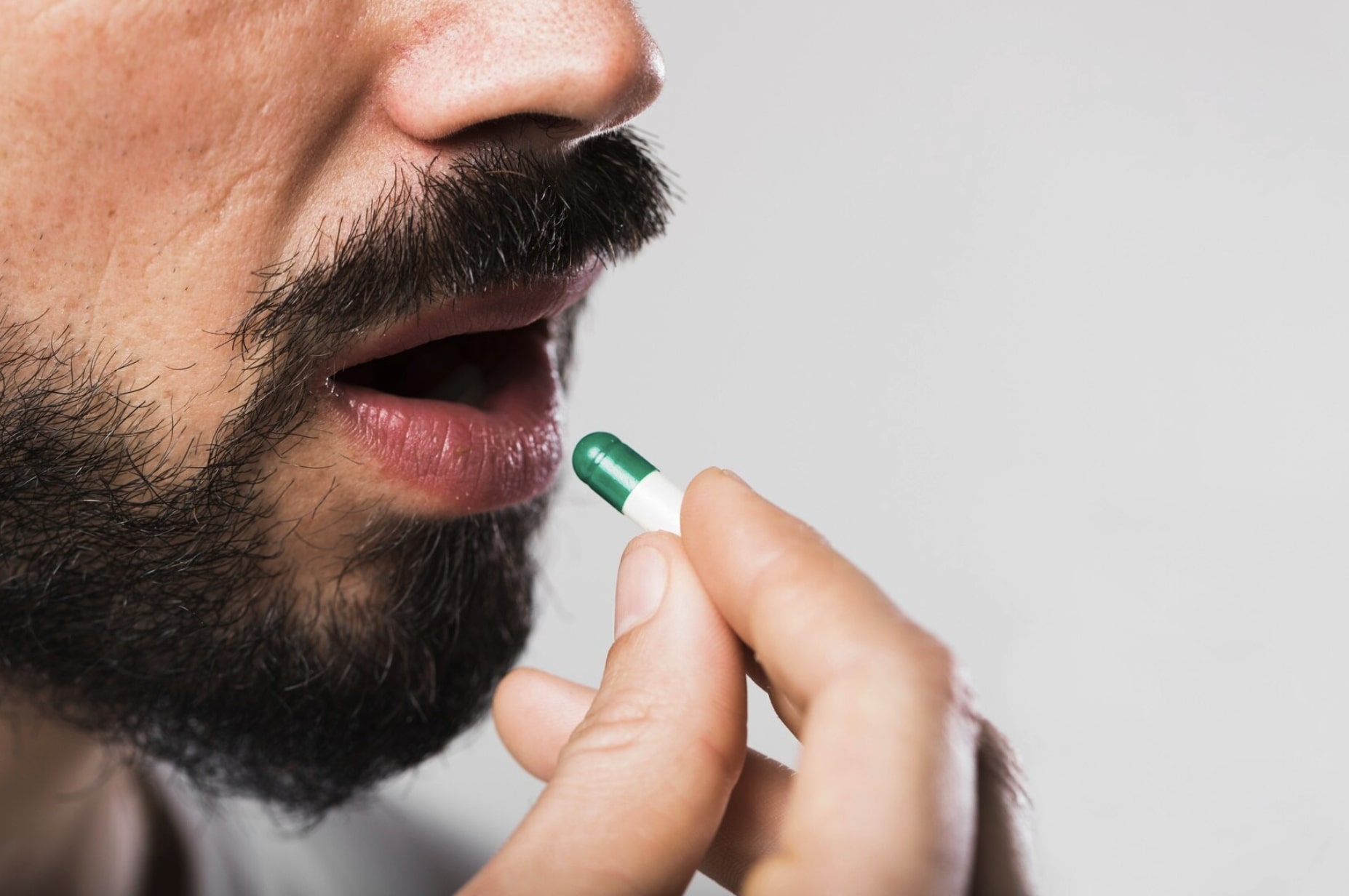Many men notice they begin gaining weight at a significantly higher rate as they age, even if their lifestyle remains largely unchanged. Suddenly, men may find that it’s harder to lose belly fat, build muscle, or keep energy levels up.
At first, it’s easy to chalk this change in body composition up to just the effects of getting older. However, there could be something deeper going on beneath the surface in your body.
Low testosterone is one of the most overlooked reasons why men gain weight, especially after 40. Contrary to popular belief, testosterone is not just a sex hormone. It is a powerful metabolic regulator. When it drops too low, it can trigger changes in body composition, energy, mood, and fat storage, which diets or exercise alone may struggle to reverse.
In this guide, we’ll explore how testosterone impacts your body weight, the signs to watch for, and what you can do if your hormones are working against you, causing you to gain excess weight.
How Testosterone Impacts Weight
Testosterone affects virtually every system involved in how your body uses, stores, and burns energy. From your metabolism to your muscle mass, low testosterone (also called low T) has a ripple effect that can set the stage for stubborn weight gain.
Testosterone and Metabolism
Your metabolism—how efficiently your body converts food into usable energy—is largely influenced by hormone activity. Testosterone boosts the basal metabolic rate (BMR), meaning it helps your body burn more calories at rest. Higher testosterone levels are associated with more lean muscle, which is metabolically active tissue. More muscle equals a faster metabolism. (1)
When testosterone levels fall, however, that metabolic efficiency drops. The body burns fewer calories, even while you sleep. This change alone can contribute to slow and steady weight gain over time, especially around the midsection.
Muscle Mass vs. Fat Storage
Testosterone is anabolic, meaning it helps build and preserve muscle tissue. It encourages protein synthesis, supports workout recovery, and fuels physical performance.
Low testosterone, on the other hand, leads to muscle wasting (sarcopenia). Studies have shown that testosterone levels drop at a rate of around 1% per year after age 30. (2) As muscle breaks down, your body composition shifts: you lose lean mass and gain fat mass, and this process tends to accelerate as you get older.
Men with low testosterone often find that no matter how hard they lift or how well they eat, it’s hard to make real progress. The body is in a biologically resistant state—geared more toward storing fat than building muscle.
The Vicious Cycle
When left untreated, particularly in older men, low testosterone can easily create a downward spiral:
- Lower T levels reduce muscle mass.
- Less muscle slows down metabolism.
- Slower metabolism leads to fat gain, especially visceral (belly) fat.
- Increased fat produces more aromatase, which converts testosterone into estrogen.
- In men with excess fat, more testosterone is converted to estrogen, potentially lowering overall testosterone levels and relatively raising estrogen levels.
- Higher estrogen and lower testosterone may further disrupt healthy testosterone production due to hormonal feedback mechanisms. (3)
Once this loop starts, breaking out of it without hormone intervention can be incredibly difficult.
Signs Your Weight Gain Might Be Hormonal
So, how do you know if your weight gain is related to low testosterone? While only bloodwork can fully confirm it, certain physical and emotional patterns suggest hormones may be part of the issue.
Here are some common red flags to be on the lookout for:
- Increased belly fat, particularly visceral fat, without significant changes to your diet or exercise routine.
- Loss of muscle tone, making you feel softer or weaker despite consistent workouts.
- Fatigue and low energy, making it harder to stay active or even motivated.
- Mood swings, irritability, or low motivation, often alongside brain fog.
- A broader symptom cluster, such as thinning hair, problems sleeping, reduced libido, and/or erectile dysfunction, and weight gain.
One symptom alone isn’t necessarily cause for concern, and many of the issues above do happen naturally as you age. However, when several of these appear together, especially for men over 30, it may be pointing to a broader issue with your hormone health.
Other Factors That Contribute to Weight Gain
While low testosterone plays a significant role for many men, it’s important to acknowledge that weight gain is a multifactorial issue. Other factors, such as lifestyle choices, stress, diet, and other health conditions often work in tandem with hormonal imbalances to contribute to weight gain in men.
Consider these common contributors:
- Diet and exercise: A caloric surplus combined with limited physical activity will eventually cause weight gain, regardless of testosterone levels. Low T can also lead to a lack of energy and motivation, which can cause you to skip workouts or abandon your diet.
- Stress and poor sleep: Chronic stress raises cortisol levels, which encourages fat storage and disrupts testosterone production. (4) Sleep deprivation has similar effects—lowering testosterone, increasing cravings, and impairing recovery.
- Aging and activity decline: As men get older, natural decreases in activity and recovery can slow down metabolism and change body composition.
- Medication and medical conditions: Studies have shown that certain drugs such as several diabetes medications (including insulin and sulfonylurea), antihypertensive drugs, beta-blockers, calcium channel blockers, and psychotropic medications can have an effect on weight gain. (5)
Additionally, certain medical conditions like thyroid disorders and insulin resistance can interfere with weight regulation and hormone production.
Because many of these issues share overlapping symptoms with low testosterone, it’s essential to work with a trusted provider, such as those at your local Gameday Men’s Health clinic, who can run accurate diagnostics and properly interpret your results in context.
How to Know If Low Testosterone Is the Cause
So how can you tell if low T is behind your new weight gain? The process starts with a clinical assessment that includes both symptom review and lab testing.
A testosterone panel typically includes several key components. First, it measures total testosterone, which reflects the overall level of the hormone in your blood. It also looks at free testosterone—the active, unbound form that your body can use immediately.
In some cases, providers will test for additional markers like estradiol, luteinizing hormone (LH), sex hormone-binding globulin (SHBG), or thyroid hormones to give a more comprehensive understanding of your hormonal health. These results, interpreted alongside your symptoms and medical history, can help determine whether low testosterone is contributing to your weight gain.
At Gameday Men’s Health, values are reviewed alongside your symptoms, lifestyle, and medical history. This helps rule out other causes and can determine whether testosterone replacement therapy (TRT) could be a safe and effective solution.
When it comes to low T, self-diagnosis and online quizzes won’t get you the results you need. Diagnosis and proper treatment from a trusted medical professional is essential.
Can Treating Low Testosterone Help with Weight Loss?
TRT is a medically supervised treatment that is designed to bring your testosterone levels back into a healthy, optimal range, which can vary. When it comes to weight gain, TRT has been shown to increase lean body mass and reduce fat mass, providing a pathway to substantial weight loss for eligible men. (6)
One study showed that, over a 56-week study of 100 obese men on a reduced calorie diet, men who received testosterone injections improved weight loss by 6.4 pounds over men who received no such treatment. (7)
While TRT isn’t a magic pill, it can restore the biological conditions that make fitness goals achievable again. In addition to reducing fat mass, TRT can also rev up your metabolic rate and improve motivation and stamina. This, in turn, can make exercise and healthy eating easier and more sustainable over the long-term.
Of course, TRT works best when paired with smart lifestyle choices. Think of it as removing a heavy roadblock—not replacing the road entirely. If you're ready to explore treatment, learn more about our Testosterone Health Services and use our Location Finder to connect with a clinic near you.
Why Choose Gameday Men’s Health?
At Gameday Men’s Health, we specialize in hormone optimization and men’s health—because you deserve care that understands your body, your goals, and your challenges.
Here’s what sets us apart:
- Hormone-focused care backed by expert providers who specialize in testosterone and men’s wellness
- Tailored treatment plans designed to support your personal goals, whether you’re looking to lose weight, improve energy, or feel like yourself again.
We understand that unexplained weight gain can feel frustrating and discouraging. If you’re doing everything “right” and still not seeing results, don’t ignore the possibility that your hormones might be holding you back.
At Gameday Men’s Health, we help men take back control of their health, starting with answers and leading to action. Whether you’re dealing with stubborn weight gain, low energy, or just haven’t been feeling like yourself, it’s time to make a change. Book a testosterone evaluation now at your local Gameday clinic to begin your journey to a healthier, happier you.
References











